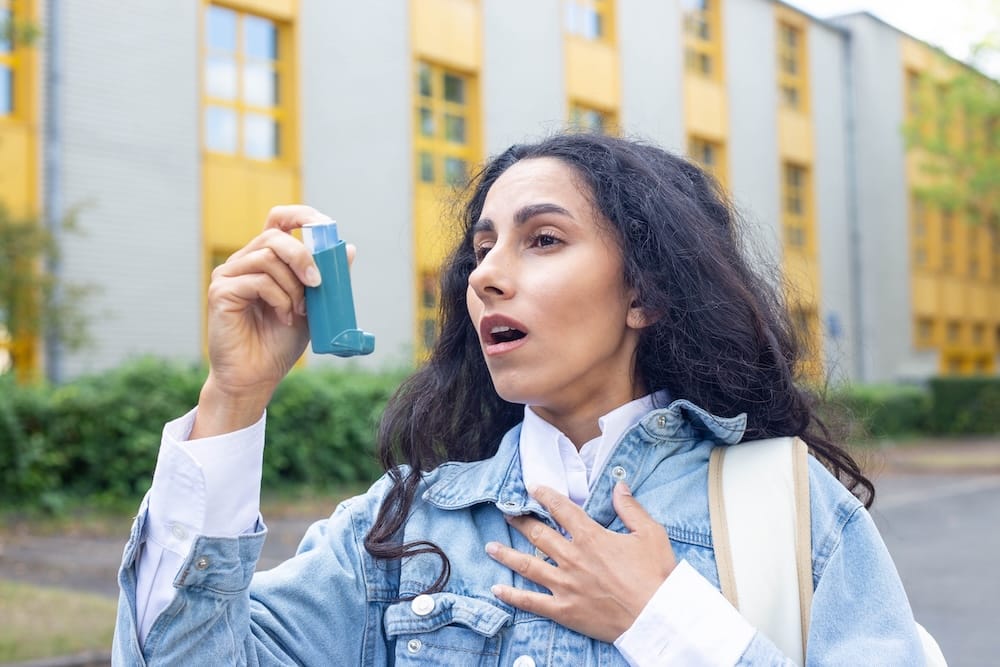
We know that many North Texas children and adults are familiar with the discomfort of asthma and how it affects their ability to breathe and perform everyday activities. This is especially true for those who have allergic asthma, where one condition can set off the other. But asthma symptoms vary in severity from person to person, and situation to situation. This leaves many people wondering just what symptoms require an appointment with their allergist.
When Should I Visit an Allergist for Asthma Symptoms?
If you or your child are one of the more than 28 million people in the U.S. who live with asthma, you know that changes in weather, environmental irritants like smoke or ozone, and even stress can activate symptoms. Yet even being aware of this, some people with this chronic condition become used to their discomfort, and delay seeking treatment from their allergist. On the other hand, some individuals are incredibly vigilant about their healthcare, but don’t want to contact their doctor too often. Below are some signs that your allergy or asthma symptoms warrant a visit to an allergist.
Presence of Persistent Symptoms
If your asthma symptoms are persistent and you’re not experiencing relief, it’s important to visit your allergist. When you’re coughing continually (or it returns at the same time each day), or your breathing is not optimal and affects your ability to perform your normal daily routine, these conditions need to be investigated by your care team.
Frequent Illnesses With Delayed Healing
The colder months can be difficult for asthmatics. The crisp, dry air can irritate your lungs and bring on symptoms. Fall and winter also coincide with cold and flu season. If you’re struggling with a persistent cold or not recovering from upper respiratory infections, you may want to schedule an appointment.
Allergic Asthma Flare-ups
When your asthma is triggered by allergies, the issue is compounded. Finding out if the flare-up is caused by an allergen can expand treatment options so that both conditions are addressed. If you notice more flare-ups at a particular time of year, after eating certain foods, or coming into contact with mold or other potential allergens, seek testing and treatment from a board-certified allergy specialist.
Changes in Treatment Efficacy or Side Effects
When you’re following your treatment plan, avoiding triggers, taking medications, yet you’re still experiencing symptoms, you’ll want to schedule a visit. Environmental components change, the body itself changes, even though such changes may not be visible. Your allergist can retest you to identify any differences, or may ask a series of questions to understand what may have caused changes in asthma and allergy treatment effectiveness. If you experience side effects with your asthma medications (even if you previously have not), this is one more reason to see your allergy doctor.
After an Emergency Visit
In the case of a severe asthma attack or anaphylaxis due to allergic asthma, seek emergency treatment immediately, especially after using your rescue inhaler or epinephrine auto-injector. Once you are stabilized, it’s a good idea to schedule a visit with your allergy specialist to discuss what happened—this may be something you’ve prepared for in your asthma action plan.
Get Personalized Asthma Care From an Expert Allergist
McKinney/Prosper and Southlake asthma patients have sought care at TexasAllergyMD for more than a decade. Dr. Mireku works with each person to provide a plan that helps them live a full, active life. Start managing your asthma symptoms by calling us today at (469) 375-1525, or request an appointment.











